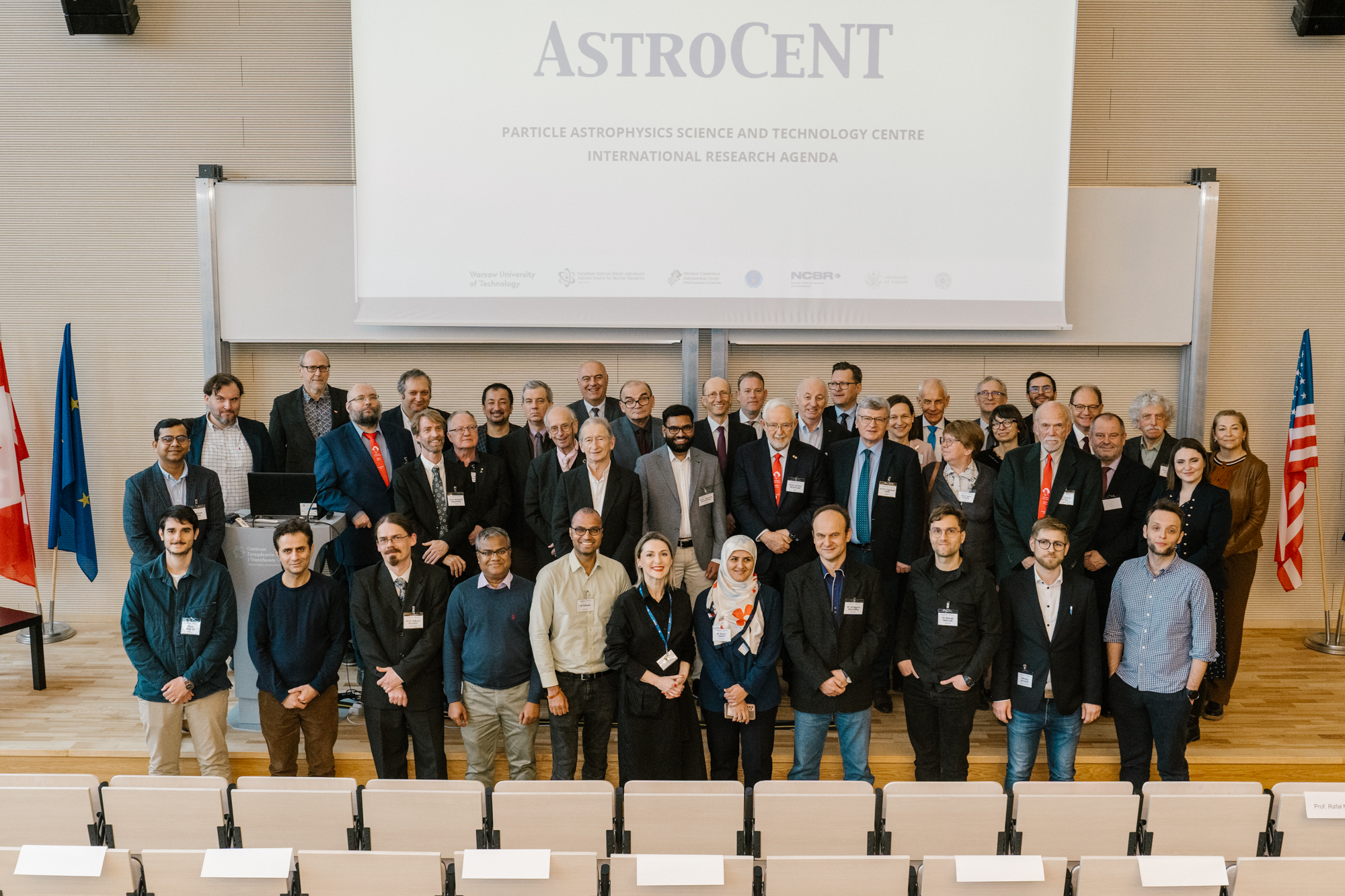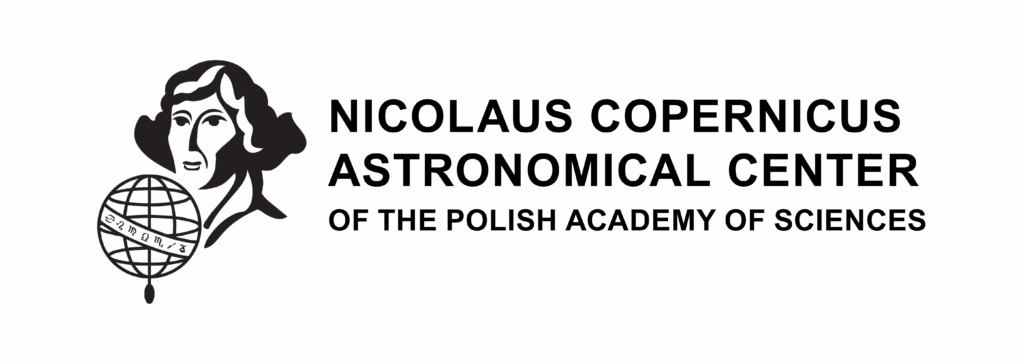At the end of December 2023 the first stage of the AstroCeNT venture came to its end. It is time to sum it up.
AstroCeNT was founded in July 2018 within the International Research Agenda (IRA) programme with the grant of nearly 38 M PLN from the Foundation for Polish Science. Its official name “AstroCeNT: Particle Astrophysics Science and Technology Centre” reflects well its main goals: to put together both basic science and technological innovations in the pursuit of exploring the mysterious invisible, or hidden, Universe. Our focus has from the start been on helping measure extremely faint signals of recently discovered gravitational waves (GWs) and those expected in searches for dark matter that provides a great majority of matter in the Universe. Later on, studies of neutrinos were added to the main pillars of our agenda.
Set up as a new administrative unit of the Nicolaus Copernicus Astronomical Center of the Polish Academy of Sciences, AstroCeNT embarked on the ambitious journey of establishing itself as an international Centre of Excellence in astroparticle physics. Over the course of five and a half years, the Centre was built up and achieved significant success on the international scene. We play an important role in large international dark matter search experiments, notably in DarkSide (M. Kuźniak, M. Wada), in the new neutrino experiment Hyper-Kamiokande (M. Ziembicki) and in gravitational wave experiments: currently running Advanced Virgo and the prospective Einstein Telescope (T. Bulik, M. Suchenek). Development and application of scientific computing methods (P. Gawron) and theoretical research in particle astrophysics (L. Roszkowski) complement the experimental and technological activities.
AstroCeNT was established as a completely new entity, which was a significant challenge. During the IRA project, we set up, starting from scratch, dedicated laboratories and other infrastructure equipped with highly specialised equipment allowing us to conduct full-scale research. We built up an effective administration and support team, and organised several activities, like the conference LIDINE or annual meetings with our strategic partner the Astroparticle and Cosmology Laboratory (APC) in Paris. We took important steps towards self-sufficiency by working to obtain new grants and develop relationships with potential industrial partners. Publishing over 111 articles in renowned journals, filing 3 patents and securing 14 grants, AstroCeNT demonstrated its unwavering commitment to advancing scientific knowledge and fostering innovation. Our International Scientific Committee, led by late S. Katsanevas until he passed away in November 2022, provided us with strong and unwavering commitment and support for the AstroCeNT project to become a success.
Throughout the project, we strived to create a positive, open and supportive atmosphere, ensuring equal opportunities for all international project participants working in a multicultural environment. At its peak recruitment effort around June 2023, AstroCeNT reached a staffing level of 45 researchers, including physicists, electronics engineers, computer scientists, technicians, and PhD students, with about half coming from abroad. In total, the centre employed 68 researchers from 6 continents and 19 countries!
Central to AstroCeNT’s success have been its collaborative efforts. We developed partnerships with highly respected groups from APC in Paris, Gran Sasso Science Institute (GSSI), Istituto Nazionale di Fisica Nucleare (INFN), Princeton University, McDonald Institute, Technical University of Munich, Nikhef, Canadian Institute of Nuclear Physics (TRIUMF), DESY, CERN, European Gravitational Observatory, and many others.
This allowed us to build up collective expertise to jointly tackle scientific challenges as equal, and often key, partners. Furthermore, collaborations with local groups at Warsaw University of Technology, University of Warsaw, Jagiellonian University, National Centre for Nuclear Research (NCBJ), Polish Academy of Sciences, Łukasiewicz Research Network, Laboratory of Quantum Computing of Cyfronet AGH, and Częstochowa University of Technology strengthened ties within the scientific community and enhanced the centre’s broader impact.
As AstroCeNT has successfully reached the end of its first stage, I would like to extend my most sincere thanks to all those who have contributed to its success: to our dedicated employees, both past and present, for their hard work, expertise, and unwavering commitment to advancing scientific knowledge; to the director and support staff of NCAS and our partners for their support and belief in our mission. Without you, AstroCeNT would not be able to achieve its ambitious goals. Challenges met on our way have only made us stronger.
As we look forward to the future, we remain committed to pushing the boundaries of scientific exploration and innovation. With continued collaboration and dedication, we are confident that AstroCeNT will continue to lead the way in unravelling the mysteries of the Universe and shaping the future of astroparticle physics.
Prof. Leszek Roszkowski,
Head of AstroCeNT







